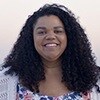Cancer and Women

“I’m living proof that screening can find cervical cancer at an early stage,” says Tamika.
Tamika was a busy young professional television producer in Washington, D.C. “I felt great and healthy, so I put off getting my routine Pap test for a few years,” she said.
“When I finally did go for a check-up, I got the shock of my life. I had cervical cancer,” Tamika said. She was only 25 years old.
“My doctor recommended a radical hysterectomy, which meant I would not be able to have kids, something I had always hoped for. I also had chemotherapy and radiation. With the support of my family and friends, I finished treatment. Now I’m cancer-free and enjoying life!
“I learned just how important it is to have a Pap test regularly. If I hadn’t had that Pap test that led to my cancer diagnosis, I might not be here today,” she said.
Tips for Lowering Your Cancer Risk
Every year, cancer claims the lives of more than 250,000 women in America. You can lower your cancer risk in several ways.
- Don’t smoke, and avoid secondhand smoke.
- Stay up-to-date on screening tests for breast, cervical, colorectal, and lung cancer.
- Protect your skin from the sun when outdoors, and avoid indoor tanning.
- Make healthy choices, like staying active, keeping a healthy weight, and limiting how much alcohol you drink.
Fast Facts About Cancer and Women
- The most common kinds of cancer among women in the U.S. are skin, breast,lung, colorectal, and uterine.
- The human papillomavirus (HPV) vaccine is available for girls and women who are 9 to 26 years old. It protects against most types of HPV that cause cervical and other kinds of cancer.
Featured Resources

“I learned the hard way: a tan is not a sign of health,” writes melanoma survivor Sharon McKenna.

Charity was diagnosed with breast cancer at 27. Learn what steps she took to be proactive about her health in this video.

In this video, Meryl Streep urges adults who are 50 or older to get screened for colorectal cancer.






















.png)











No hay comentarios:
Publicar un comentario